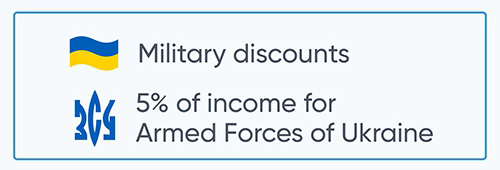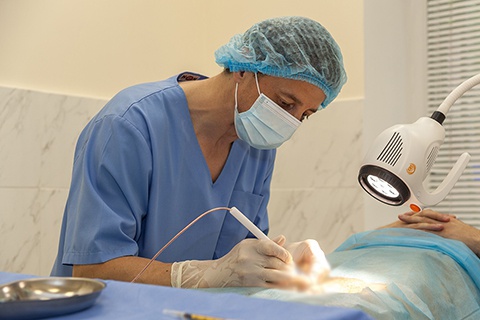

Circumcision of the foreskin (circumcision) as prevention of oncology in men and women
Penile cancer and cervical cancer. Oncology, which can be prevented by the usual circumcision of the foreskin (circumcision).
How are genital cancer and circumcision related?
It has been scientifically proven that the 16th and 18th types of HPV (human papillomavirus) are one of the causative agents of oncology of the penis and cervix. On October 6, 2008, Harold zur Hausen, a scientist from Germany, received the Nobel Prize for this discovery. As part of the research, Hausen's colleagues cloned the HPV 18 gene. HPV types 16 and 18, taken together, "cover" 82% of genital cancer cases. (If desired, you can read more about this work of Harold zur Hausen on the Internet, also in specialized publications. There is a lot of information, it is freely available).
In the presence of the foreskin, the head of the penis is more sensitive (it is not about the sensation of sexual intercourse, but about the perception of viruses and bacteria in the environment), there is mucus on the membrane of the head of the penis. The inner layer of the foreskin contains glands that produce smegma (the so-called "lubricant") - a substance that provides sliding between the head of the penis and the foreskin, which is designed to provide easy opening and closing. Smegma, together with urine and other natural secretions, accumulates in the foreskin (a space, a kind of "pocket", which is formed between the inner and outer layers of the foreskin). As a result, a comfortable nutrient environment for various viruses and bacteria is created in this area.
Even if a man observes personal hygiene, he is still in the risk zone, since a priori he has a certain area with suitable conditions for the life and reproduction of harmful microorganisms.
Especially in the risk group:
- Men who, due to the specifics of their activity, cannot always maintain genital hygiene. For example, shift work in adverse conditions. (Or, they simply treat personal hygiene irresponsibly). Viruses do not need much time to establish themselves.
- People suffering from diabetes. With diabetes, the pH of the mucous membranes changes, and immunity also decreases. In such conditions, even with good hygiene, the risk of infection is very high.
- Men in whom smegma is produced with increased activity. This is an individual physiological feature in which the glands in the foreskin produce lubricants more than necessary.
Another factor we want to pay attention to.
In uncircumcised men, there may be a violation of trophic (blood circulation) of the penis. This happens if the foreskin is narrowed. The patient feels discomfort, unpleasant sensations appear during erection. But he doesn't have phimosis yet. When the head of the penis is exposed, the so-called strangulation (squeezing) furrow is visible. It is located exactly where the outer layer turns into the inner one. This condition can be conditionally designated as the initial phase of the 1st stage of phimosis. As a result of such compression in the penis, and in particular in the area of the head of the penis, blood circulation is disturbed. This causes a decrease in local immunity.
Local immunity prevents allergies in this area, destroys viruses, bacteria, protects during sexual contact (when "foreign" mucus appears). Accordingly, with weakened local immunity, dangerous microorganisms get more chances to survive and manifest themselves.
And now to the main question: how circumcision of the foreskin prevents oncology?
- During circumcision, the foreskin, together with the glands that produce smegma, is cut out and removed. (These glands, apart from the production of lubricant, do not perform any other functions. Their removal does not cause any harm to the body). Accordingly, the environment itself, the place where pathogens can take root and live, is eliminated.
- The membrane of the head of the penis becomes hard, losing its previous "tenderness". Its coating becomes more similar to the skin than to the mucous . As a result, it is less sensitive to bacteria. It becomes more difficult for microorganisms to enter the body.
- Hygiene is greatly simplified. Viruses and bacteria are much easier to wash away. Biological secretions and urine do not accumulate in the skin, and smegma is not produced at all.

The result: even when they get on the skin of the genitals, viruses and bacteria cannot "take hold" and develop. Therefore, the probability of the occurrence of the disease drops significantly.
Also, a circumcised partner is more "pure" for his partner. The probability of introducing viruses into the vagina also decreases.
By the way, this applies not only to oncology. Circumcision (circumcision) on the same principle is a prevention of STDs and other sexually transmitted diseases.
Statistics speak even more eloquently (more detailed information can also be obtained from open sources).
STATISTICS:
- Genital papillomas in circumcised men are rare. Much less often than uncircumcised. Not only in men, but also in women whose partners have performed circumcision, papillomas in the genital area are not a frequent phenomenon.
- It has been proven that among penile cancer patients, 14% suffered from phimosis. Phimosis is usually preceded by balanoposthitis (inflammation of the foreskin). This is quite a large, significant percentage. And vice versa: in those who had inflammation of the foreskin or phimosis, but were circumcised in time, the risk of cancer is significantly reduced.
- If we compare the data of countries where circumcision is practiced more and less, we will get indicators that in those regions where circumcision is performed more often, there are men with penile cancer, women with cervical cancer, as well as those with HPV genitals - less. Regardless of the standard of living. For example: in such countries as India, Israel, Arab countries - oncology of the genital organs is less common than in any other regions where circumcision is not common.
- Most often, penile cancer and cervical cancer occur in regions where foreskin circumcision is not popular, and besides, there is a frequent violation of personal hygiene.
In conclusion, we want to encourage men regarding circumcision of the foreskin:
- It is an absolutely safe and non-harmful, non-complicated operation. Does not require long rehabilitation (we have repeatedly talked about the safety of this procedure - read more about circumcision of the foreskin here:
https://m.urology-practice.com.ua/en/urological-operations/circumcision.html) - Sensitivity and sensation from sexual intercourse will not be affected! Yes, the sensitivity on the head of the penis is somewhat dulled, because the skin on it becomes rougher. But this only prolongs the process (from which both you and your partner will benefit). The main percentage of satisfaction a man receives through the root (base) of the penis. So you can not worry about the foreskin!
Keep yourselves. Take care of yourself. After all, your health is the guarantee of a quality life - not only for your own, but also for the people close to you.
Author of the article:
Leonid Maksymenko
urologist, andrologist, doctor of the highest category
about the doctor: https://m.urology-practice.com.ua/en/urologist_-andrologist-leonid-maksimenko.html
https://www.instagram.com/urolog.maksimenko/
https://www.facebook.com/urolog.maksimenko
https://www.youtube.com/channel/UCih6_yIVhOGDf1F8bWghAkQ/featured









